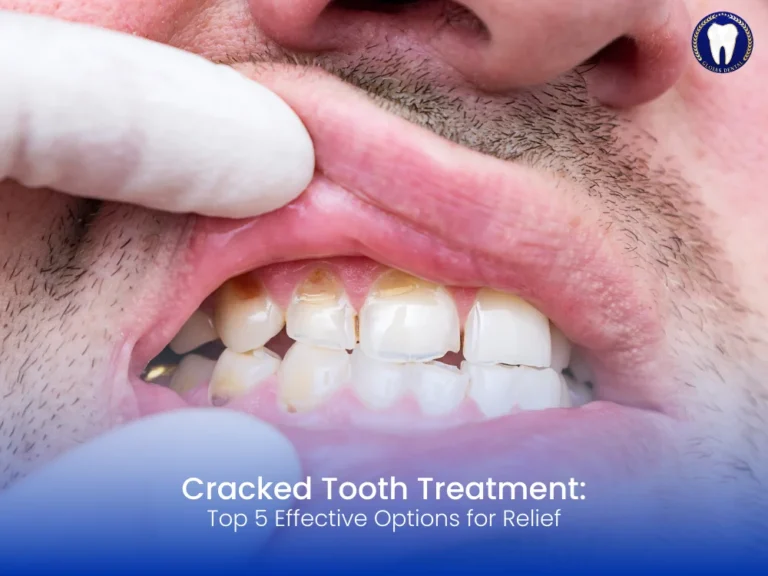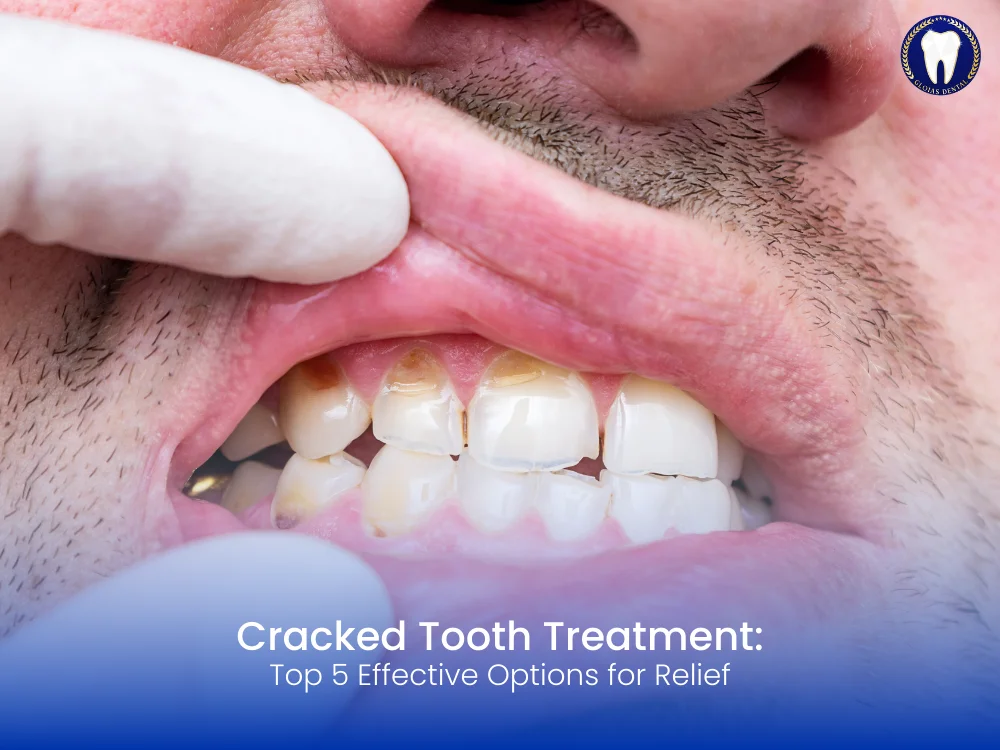A cracked tooth can bring unexpected pain, discomfort, and anxiety. Whether it’s caused by trauma, grinding, or biting something hard, it’s essential to act quickly. Cracked tooth treatment isn’t just about relieving pain—it’s about preventing further damage and saving your natural smile. Fortunately, modern dentistry offers several effective cracked tooth treatment options tailored to the severity of the crack and your dental health.
Let’s explore the best ways to treat a cracked tooth, understand what causes it, and learn how to protect your teeth from future damage.
Understanding the Importance of Cracked Tooth Treatment
A cracked tooth may not always be visible to the naked eye, but its impact can be profound. Cracks can expose the sensitive inner pulp, leading to infection or decay. If left untreated, a small crack can lead to tooth loss. That’s why timely cracked tooth treatment is not only essential—it’s urgent.
Signs You Might Need Cracked Tooth Treatment
- Sharp pain when biting or chewing
- Sensitivity to temperature changes
- Swelling around the tooth
- Intermittent discomfort
- Unexplained gum pain
Common Causes of Cracked Teeth
Before diving into treatment options, it helps to understand what might be causing the cracks in your teeth:
- Bruxism (teeth grinding)
- Trauma or injury
- Biting hard substances (e.g., ice, nuts)
- Large fillings that weaken the tooth
- Sudden temperature changes in the mouth
Once the cause is identified, your dentist can recommend a cracked tooth treatment that not only heals the crack but also prevents future issues.
Top Cracked Tooth Treatment Methods
Cracked tooth treatment varies based on the location and depth of the crack. Here are the most reliable and widely used methods:
Dental Bonding for Minor Cracks
For surface-level or hairline cracks, dental bonding is a quick and painless solution. A tooth-colored resin is applied to the crack, hardened using a special light, and then polished for a natural finish.
Benefits:
- Non-invasive
- Immediate results
- Cost-effective
Ideal For: Minor aesthetic cracks or small chips.
Dental Crowns: The Protective Shell
When the crack is more severe but the tooth root is intact, a dental crown is often the go-to cracked tooth treatment. The crown encases the entire tooth, offering protection and strength.
Benefits:
- Restores function and appearance
- Prevents crack from spreading
- Durable and long-lasting
Ideal For: Moderate to deep cracks, especially in molars.
Root Canal Therapy: Deep Crack Solution
If the crack extends into the pulp and causes pain or infection, a root canal is often required. This treatment removes the infected pulp and seals the tooth to prevent further complications.
Benefits:
- Saves the natural tooth
- Eliminates infection
- Reduces pain
Ideal For: Cracks that reach the pulp or involve nerve damage.
Tooth Extraction: The Last Resort
When the tooth is split beyond repair or the crack goes below the gum line, extraction might be the only option. After extraction, options like implants or bridges can replace the missing tooth.
Ideal For: Severely damaged teeth where other cracked tooth treatments won’t work.
Porcelain Veneers for Front Tooth Cracks
For cracks on visible front teeth, veneers provide a cosmetic and protective solution. These custom-made shells cover the front surface, hiding cracks while improving appearance.
Benefits:
- Cosmetic enhancement
- Natural look
- Long-lasting
Ideal For: Superficial cracks on front teeth.
Home Care After Cracked Tooth Treatment
Proper aftercare is key to the success of any cracked tooth treatment. Here’s how to care for your treated tooth:
- Avoid hard or sticky foods
- Use a mouthguard if you grind your teeth
- Practice excellent oral hygiene
- Schedule regular dental checkups
Can You Prevent a Cracked Tooth?
Yes, many cracked tooth incidents are preventable. Here are some tips:
- Don’t chew on ice or hard objects
- Wear a mouthguard during sports or at night (if grinding)
- Avoid sudden temperature shifts in the mouth
- Regular dental visits to catch issues early
Cost of Cracked Tooth Treatment
Cracked tooth treatment costs vary:
Treatment | Approximate Cost (USD) |
$100–$400 per tooth | |
Dental Crown | $800–$1500 per tooth |
$700–$1200 per tooth | |
$75–$300 per tooth | |
Veneers | $900–$2500 per tooth |
Check with your dental insurance provider as many plans cover part of the cost.
When to See a Dentist for a Cracked Tooth
Never ignore dental pain. If you experience symptoms like sharp pain when chewing, sudden sensitivity, or visible cracks, contact a dental professional immediately. Early cracked tooth treatment can save the tooth and prevent serious complications.
FAQs About Cracked Tooth Treatment
1. What happens if a cracked tooth goes untreated?
It can lead to infection, tooth decay, and even tooth loss.
2. Can a cracked tooth heal on its own?
No, dental treatment is necessary to repair and stabilize the tooth.
3. How long does cracked tooth treatment take?
Most procedures, like bonding or crowns, are completed in one to two visits.
4. Is cracked tooth treatment painful?
Dentists use local anesthesia, so the procedure is typically painless. Mild soreness may follow.
5. Will insurance cover cracked tooth treatment?
Most insurance plans cover medically necessary treatments. Cosmetic procedures like veneers may not be covered.
6. Can a cracked tooth be saved?
Yes, if treated early, many cracked teeth can be restored with bonding, crowns, or root canals.

